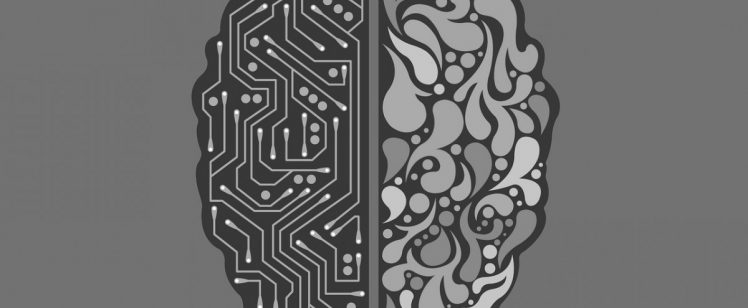-
Can Traditional Outsourced Recruiting Be Replaced by AI?
Of the many techno-marvels making waves in the business world, there are few that capture the imagination quite like the rise of Artificial Intelligence (AI).
The idea of corporations being powered by AI has a rich tradition in sci-fi culture, and until recently, that was all AI was—a futuristic sounding application that created unheard of possibilities and challenges for those using it.
These days, AI integration has moved out of the realm of fiction and has become an inseparable part of the global economy. From consumer-facing applications like Siri to large-scale corporate integrations that utilize cognitive learning to proactively create value, AI is already transforming the business world.
And of course, this includes the world of outsourced recruiting.
The Growth of AI
Business-facing AI solutions are already disrupting the way corporations manage their data, with nearly limitless applications:
- Speech and voice recognition as parts of fully automated environments, such as the Smart Home
- Machinery automation, such as self-driving vehicles guided via cloud-based navigation
- Advanced data processing through machine learning and algorithms that continually build on existing databases to create more and more value over time
Broadly, the growth of AI is powered by cognitive learning applications that let businesses sift through mountains of data to derive value-driving insights from the noise.
Naturally, businesses that specialize in outsourced recruiting are taking advantage as well. It’s no secret that global enterprise is expanding available talent pools. Combine this with the increasing complexity of enterprise-level business roles, and efficient recruiting becomes a tall order indeed. It’s understandable that business owners would trust in the untapped potential of AI integration to sort through these candidates, but outsourced recruiting isn’t simple.
The Drawbacks of AI
There’s no limit to the types of industries that AI technologies affect, but its use is a double-edged sword.
The primary drawback involves the loss of relationships. The processing power of advanced AI solutions may be impossible to match by human standards, but the trade-off for this efficiency is, to put it bluntly, a loss of humanity. AI solutions can process obscene amounts of information based on defined sets of rules, but it’s ineffective at creative thinking and predicting the needs of human customers.
Consider how travel agencies use AI to better match clients with low-cost airfare and hotel accommodations. With advanced data management algorithms that can sort through hundreds of options in the blink of an eye, AI can automate a large part of a travel agent’s job. However, it can’t build personal connections with clients or apply specific industry expertise in the same way humans can.
Can AI Automate Recruiting?
Although travel is just one example, the trend is consistent across every industry that employs AI solutions: Machines can’t match the personalized approach to relationship building that is so important in the business world.
The most effective recruiting practices can’t be automated or handled by machines; they come as a result of an outsourced provider working in tandem with its clients to provide a personalized approach to business recruiting. For example, aspects such as candidate personality (one of the many features that determine the all-important cultural fit of a candidate) cannot be measured by AI algorithms.
For this reason alone, AI still has a long way to go before it can come close to automating outsourced recruiting. To find the candidates that best match each business’s needs, a personal approach based on relationships is still the most effective strategy. If you’re interested in learning more about the benefits of personalized recruiting, contact us to schedule an assessment for your business today.
Urgenci

